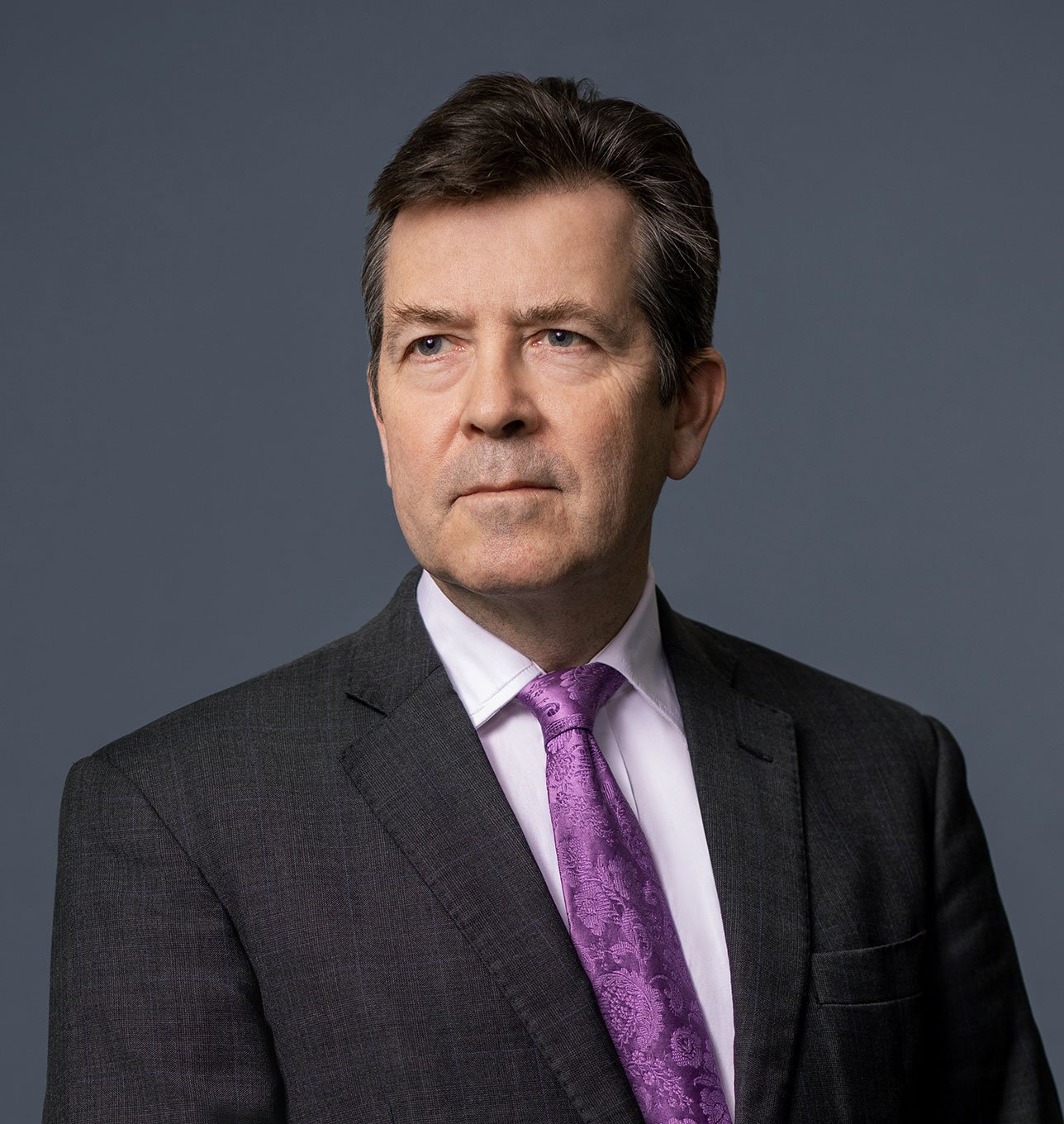UK Court of Appeal criticises SFO's "serious failure" to disclose critical material in Unaoil corruption investigation
The UK Court of Appeal's recent judgment overturning the conviction of Ziad Akle for bribery marks a serious blow to the SFO, the implications of which will only become fully apparent following the completion of the independent review which the UK Attorney General has now initiated.
The UK's Serious Fraud Office ("SFO") has been engaged in a significant investigation of the Unaoil group of companies ("Unaoil") since July 2016. This investigation has extended to various individuals connected to Unaoil, including Ziad Akle ("Akle"). Whilst Akle was convicted in July 2020 of conspiracy to give corrupt payments – of over $500,000 to secure a contract worth over $50 million – the trial judge criticised the conduct of the SFO albeit rejecting an earlier application to strike out the case for abuse of process. Now, the UK Court of Appeal ([2021] EWCA Crim 1879) has found that the SFO's failure to disclose critical material relating to its own conduct – including the conduct of the Director of the SFO ("DSFO"), Lisa Osofsky – rendered Akle's conviction unsafe, with the result that Akle's conviction has been quashed, with no retrial ordered given the SFO's disclosure failings. The UK Attorney General has now launched an independent review of the issues highlighted, including disclosure failings at the SFO.
Background
The SFO alleged that Akle had conspired with the people controlling Unaoil (being Ata Ahsani, and his sons Cyrus and Saman Ahsani) to bribe officials in Iraq to influence the terms and allocations of oil pipeline contracts in the period after the overthrow of Saddam Hussein in 2003, allegedly via an individual in Iraq named Basil Al Jarah ("BAJ"). In July 2019 BAJ pleaded guilty to the SFO to five counts of conspiracy to give corrupt payments.
The SFO's investigation into the Ahsanis was discontinued in April 2019 when the Ahsanis negotiated plea agreements with the US Department of Justice ("DOJ"). Under the terms of these plea agreements, Ata Ahsani paid a penalty of $2.25 million (with no further action), and his sons, following their plea, are expected to serve no more than five years' imprisonment.
In order to secure the conviction of Akle, the SFO sought to adduce evidence of BAJ's convictions at his trial, as evidence of the conspiracies with which Akle was charged. As part of the substantial disclosure exercise, the SFO provided (as was required) schedules of unused material. These schedules included reference to contacts between the SFO and David Tinsley of 5 Stones Intelligence, an intelligence and investigative company based in the US. Whilst not a lawyer, David Tinsley was actively involved in helping the Ahsanis. Throughout the disclosure process, the SFO had disclosed only the summary details of its interactions with Tinsley, rather than the underlying documentary evidence, and there had been criticism of the completeness even of these summary details.
Akle argued that "BAJ's plea, and possibly the decision by the SFO not to pursue any charges against the Ahsanis, appeared to have been improperly influenced and facilitated by Tinsley. Tinsley was described as a 'fixer' seeking to negotiate between the Ahsanis, the US authorities and the UK authorities" including the DSFO "and it was said that BAJ had entered his pleas as a result of being placed under improper pressure, and misled, by Tinsley."1
The original trial
At the start of his trial Akle sought to stay the prosecution for abuse of process, contending that the SFO had "acted with Tinsley in a way which flouted legal and regulatory safeguards and breached Akle's right to a fair trial."2 The judge refused the stay application. In his judgment setting out the reasons for refusing the application, he criticised the conduct of the SFO, including the conduct of the DSFO, in dealing with Tinsley. However, the judge found that "there was no evidence that the SFO gave Tinsley any sensitive information and no evidence that Akle acted against his own interests as a result of his contact with Tinsley or acted to his own prejudice as a result of anything Tinsley said to him."3
Having been found guilty of two of the three counts with which he was charged, Akle was sentenced to concurrent terms of five years' imprisonment. Akle appealed his conviction, on the grounds that:
- the judge erred in rejecting the application to stay the proceedings as an abuse of process; alternatively
- the SFO failed fundamentally to comply with its obligations to disclose material capable of supporting Akle's abuse of process application; and
- the judge erred in not allowing Akle to adduce evidence that might have proved that BAJ was not guilty.4
The communications between the SFO and Tinsley
The appeal was originally due to be heard in July 2021. However it was postponed because, having heard detailed argument, the Court of Appeal directed that the SFO:
- disclose the materials underlying the references in the schedules of unused material of the communications between the SFO and Tinsley;
- make appropriate enquiries in relation to contact between the SFO and Tinsley for which there was no documentary evidence; and
- provide a chronological schedule of contact between the SFO and Tinsley.
This resulted in about 650 pages of documentation being disclosed which had previously not been available to Akle or the Court.
The new information disclosed by the SFO detailed various substantive communications between the SFO and Tinsley about Akle's case, even though (as the SFO knew) Tinsley was not acting for Akle, he was acting for the Ahsani brothers – and even then he was not a lawyer for them, but an adviser. The new information revealed, amongst other things, that:
- Tinsley had approached the DSFO directly on 21 September 2018, and the two of them met alone, with no notes being taken;
- The extent of contact between Tinsley and the DFSO was apparently more extensive than had previously been understood. The DSFO had said that apart from one brief telephone call and a "courtesy meeting" in January 2019, she had no further contact with Tinsley. However Tinsley said in a call with Akle and Saman Ahsani that he (Tinsley) had "probably had nine conversations with [the DSFO] and four meetings, one of which went three hours"; in a separate conversation with Akle, Tinsley apparently said that he had "constant conversations with her and a great relationship and that she and the [SFO's] head investigator "were giving us everything we've asked for"";
- In February 2019 Tinsley detailed in emails that the SFO (including the DSFO) had agreed to transfer the Ahsanis' case to the US "with the understanding that they were available for case assistance and as prosecution witnesses in furtherance of SFO cases"; Although the Ahsani sons had been charged in the US (meaning under the double jeopardy rule they would not be able to be charged by the SFO for the same underlying offences), their father Ata Ahsani had not been charged and warrants had been issued against him by the SFO on the basis there was sufficient evidence to charge him – for the SFO to change its mind and withdraw that warrant saying that the prosecution of Ata Ahsani was not in the public interest would require the further consent of the Attorney General;
- In May 2019 Tinsley told a case controller at the SFO, Ms Isaac, thathe could "get [BAJ] in"; Ms Isaac recorded that her response was that "the deal with [BAJ] could potentially be about plea to indictment but then we may be able to take a view regarding other matters which we are investigating". The next day Tinsley said that BAJ wanted to plead guilty and would help the SFO. Ms Isaac's note of the call ends with the words that Tinsley "says he doesn't want BAJ to be charged with other matters".
The newly disclosed documents also showed that the Chief Investigator at the SFO who had engaged regularly with Tinsley, Mr Davis, did not keep notes of his communications with Tinsley, notwithstanding an internal SFO note sent to Mr Davis and the rest of the SFO case team that full records of all contacts with Tinsley and his company (5 Stones Intelligence) be made. Further, on "11 July 2019 Davis was specifically asked for any relevant material which would be needed for disclosure in these proceedings. On 16 July, however, Davis brought about the wiping of data from his SFO-issued mobile phone, as a result of which" the SFO was unable to recover any of the text messages Davis had exchanged with Tinsley. The SFO's explanation was that Davis repeatedly entered an incorrect code, which caused data to be wiped from his phone. The Court noted that, if that was correct, it appeared to have been the second time in less than a year that Davis had caused a mobile phone to be wiped, which would have required him to enter the wrong password five times, despite a specific warning on the phone to contact the service desk.5
The Court of Appeal also noted that in several instances the information originally provided to Akle at his trial, by way of the summaries of these communications in the schedules of unused material, was inadequate or incomplete.
The appeal
Having been postponed from July 2021 for the SFO to provide the further disclosure ordered by the Court of Appeal, the appeal was heard in October 2021. Akle argued that the communications newly disclosed by the SFO showed that Tinsley proposed, and the SFO agreed to, a trade: that the SFO would obtain intelligence from the Ahsanis and the SFO would get guilty pleas from BAJ and Akle. The SFO argued that they showed only that the SFO was listening to Tinsley – that "Tinsley was not doing the SFO's bidding, and the SFO were not doing his."6
The Court of Appeal found that, on the evidence and information available to him at the time, the judge had not erred in refusing the application to stay the prosecution for abuse of process (which is an "exceptional remedy").
However the Court of Appeal held that the failure of the SFO to provide the underlying material detailing the communications between the SFO and Tinsley was "a serious failure by the SFO to comply with their duty" of disclosure which "cannot be justified by reference to the precise terms" of a request from Akle for disclosure.7 This "serious failure" to comply with the duty of disclosure meant that the trial judge, and Akle, "had nothing like the full picture which is now available".8 The Court of Appeal concluded that "if the documents now available had been provided to the defence before or at the start of the trial, counsel then appearing for Akle would have had significantly stronger arguments available to him on the issues relating to BAJ's guilty pleas."9
The Court of Appeal had some strong criticism of the SFO's dealings with Tinsley: it was "wholly inappropriate for the SFO to have any dealings with Tinsley in relation to the pleas of BAJ and Akle"; "[w]hy, then, did the SFO engage with Tinsley at all?" After all, the Court of Appeal concluded, "Tinsley was obviously focused on pursuing a course which was in the best interests of the Ahsanis"10 rather than Akle or BAJ.
The Court of Appeal determined that the documents which the SFO sought not to disclose, and were only disclosed at the direction of the Court of Appeal, were "clearly capable of lending significant force to the defence argument" and showed the interactions with Tinsley went far beyond the "little more than listening" as the SFO sought to characterise them. The Court of Appeal concluded that "Tinsley was certainly enabled, and arguably encouraged, to convey to BAJ – behind the backs of his legal representatives – an indication that if he pleaded guilty to the charges on the indictment the SFO might "take a view" about other potential charges."11 If Akle had had these underlying documents, rather than the (occasionally inadequate) summaries contained in the disclosure schedules, Akle would have been able to present his case in its best light.
As a result, the Court of Appeal was "satisfied that there was a material failure of disclosure which significantly handicapped the defence in arguing that the evidence of BAJ's convictions should be excluded", as the documents would have shown that "Tinsley was deliberately operating behind the backs of BAJ's lawyers, and that Tinsley wanted to control whom BAJ spoke to".12 Importantly, this meant that "the defence were denied the stronger position to which they were entitled. In consequence, through no fault of the judge, Akle did not have a fair trial."13
The Court of Appeal was therefore satisfied that Akle's convictions were not safe; his "convictions must therefore be quashed."14
To try to rescue the position, the SFO applied for a retrial. To determine whether or not there should be a retrial, the Court had to undertake a balancing exercise between the public interest in favour of a retrial and Akle's legitimate interests. On balance, the Court of Appeal held that the Akle's legitimate interests outweighed the public interest: Akle's grounds of appeal related to the significant failure of the SFO to comply with its duty of disclosure, and a retrial would likely involve substantial further delay for a man already in poor health. The Court of Appeal therefore declined to order a retrial.
Conclusion
This judgment calls into question the conduct and judgment of the SFO at its highest level. The SFO, from the DSFO down, were dealing with a 'fixer', Tinsley, who was seeking to broker agreements as to who was tried in which jurisdiction. Despite Akle's request, the SFO failed to provide the documentary evidence of its interactions until it was ordered to do so by the Court of Appeal. This meant that the SFO prevented Akle from putting his case forward in its best light. The SFO's "serious failure" to comply with its duty of disclosure compounded the error in its dealing with Tinsley and was a significant factor in the Court of Appeal declining to order a retrial. This means that one person initially convicted (Akle) has had his conviction overturned with no opportunity for the SFO to revisit this, and the Court of Appeal judgment calls into question the confession of another person the SFO had been investigating (BAJ). This is a significant loss for the SFO in one of its most high-profile investigations, which will also have significant costs consequences arising from the original trial, the appeal and dealing with Akle's costs.
The Attorney General, who is responsible for overseeing the SFO, has now commissioned her own review of the issues highlighted by the Court of Appeal Judgment including the SFO's disclosure failings. This review, which the Attorney General had initially resisted when the trial judge first raised criticism of the SFO, will be independent of the SFO, and will report directly to the Attorney General.
More generally, disclosure is a critical part of any litigation and parties must take their disclosure obligations seriously, whether in the context of criminal or civil proceedings. It is not enough for a party to ask if it has complied with the terms of a particular order or request – it must also consider whether it has complied with its disclosure duties more broadly.
The consequences of a party failing to consider and act on its overriding disclosure obligations can be severe – in this case, they resulted in an unsafe conviction which was subsequently quashed.




